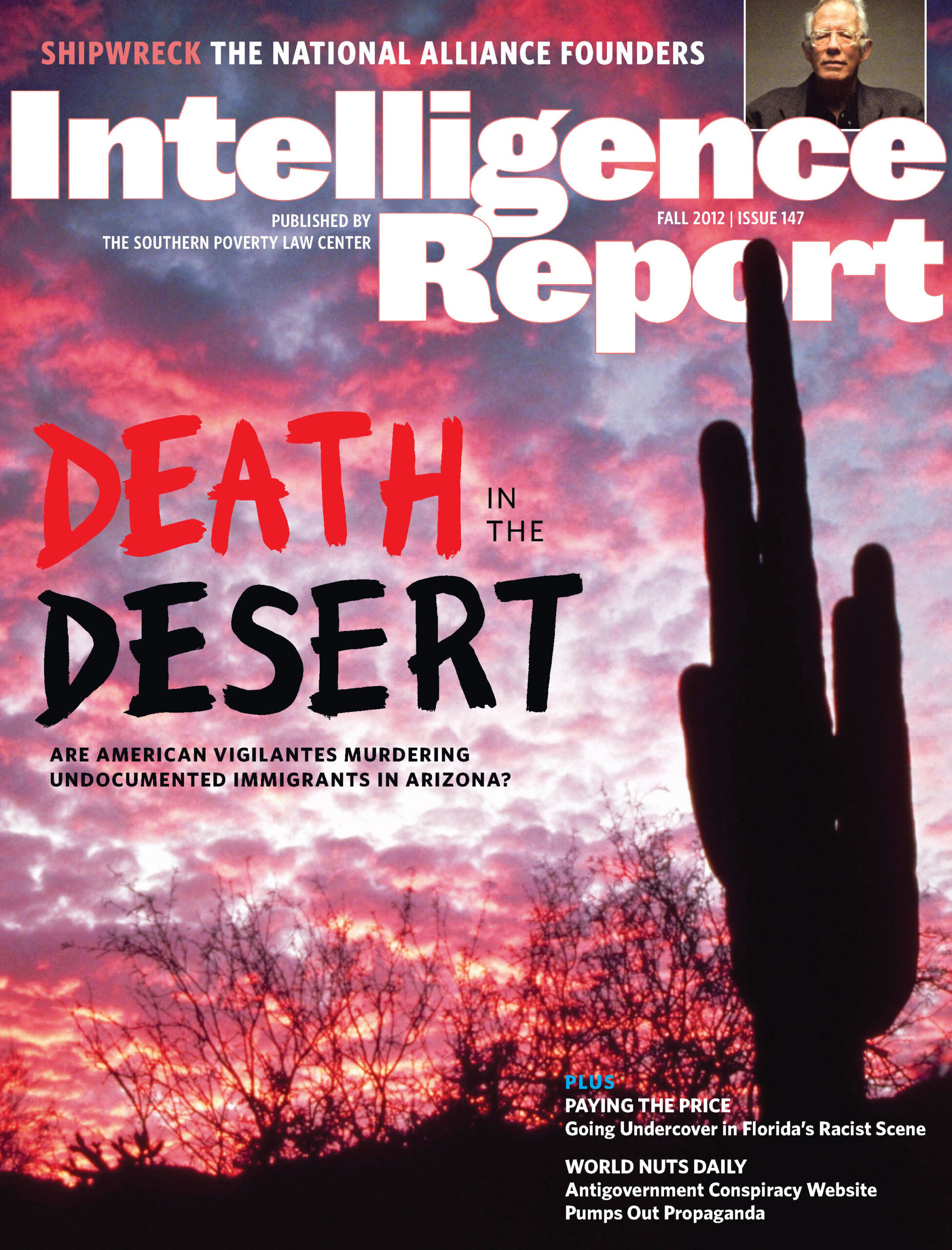The growing influence of far-right conspiracy theorists on mainstream politics has come into sharp focus this year with a spate of laws, ordinances and resolutions opposing Agenda 21, a non-binding plan for global sustainability seen by many antigovernment hardliners as a Trojan Horse for socialist global government.
In May, Alabama legislators voted unanimously in favor of a bill barring the enactment of any policy recommendations traceable to Agenda 21 in the latest attack on what the far right sees as an insidious attempt to impose a one-world government that despises property rights and other freedoms.
Alabama’s “Due Process for Property Rights Act” was hailed as a victory by the John Birch Society (JBS), a far-right group best known for accusing President Dwight D. Eisenhower of being a secret communist agent and for opining that fluoridated water is a communist plot to poison America. For a short time in the early 1960s, the JBS was an influential force in the Republican Party — until William F. Buckley Jr., the intellectual architect of postwar conservatism, led a campaign to “excommunicate” it from conservative circles, warning Republicans against “acquies[ing] quietly” to the JBS’ “false” “rendition of the causes of the decline of the Republic and the entire Western world.”
Buckley died in 2008, and the JBS has been making a steady comeback since. Since September, it has sponsored a national lecture tour claiming that Agenda 21 —in reality a completely voluntary plan for global sustainability signed in 1992 by President George H.W. Bush and the leaders of 177 other nations — calls for “a profound reorientation of all human society, unlike anything the world has ever experienced.” The ultimate purpose of this 20-year-old plan, it says without any evidence at all, is nothing less than a “New World Order” in which rural regions will be depopulated and foreign bureaucrats will mandate family size in the U.S. and elsewhere, if necessary by imposing forced abortions.
Apparently taking these warnings to heart, the Republican National Committee in January passed a resolution opposing Agenda 21, which it called “a comprehensive plan of extreme environmentalism, social engineering, and global political control.” Counties in various states have adopted similar resolutions, as has the Tennessee House of Representatives. According to the JBS, activists in New Hampshire are lobbying to pass anti-Agenda 21 legislation. Arizona’s state Senate this spring passed a bill similar to Alabama’s, but it died before the session ended.
Agenda 21’s community sustainability efforts are coordinated through something known as ICLEI — the International Council on Local Environmental Initiatives. Under its auspices, more than 1,000 cities and municipalities around the world, including hundreds in the U.S., have received grants (or bribes, if you agree with the conspiracists’ version of the story) that will help implement local sustainability proposals. Depending on how it’s interpreted, the Alabama bill may mean that Birmingham and Huntsville, the two Alabama municipalities that belong to ICLEI, will have to withdraw.
News of the bill’s passage nevertheless calmed certain nervous Alabamians. In an early June speech compared by one local reporter to a “tent-revival exhortation,” Baldwin County Commissioner Frank Burt reportedly said that if the non-binding initiative weren’t halted, the U.S. Supreme Court would give way to an international court located in The Hague. “We are all for protecting the environment,” he said. “But this is something that has seeped in amongst us. I don’t think we need the United Nations to tell us what to do.”



